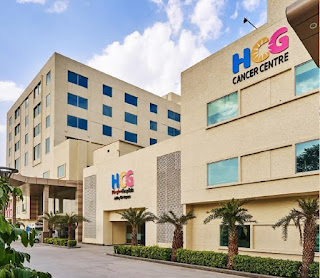Who is at Risk for Liver Cancer?
Liver cancer is the third most common cancer in men and women in India second most common cancer. The liver is a vital organ that helps your body to break down food and process toxins. However, liver cancer can develop when the cells that make up your liver start to grow uncontrollably.
Many risk factors are associated with liver cancer. Not everyone with one or more of these risk factors will develop the disease, and some people with no known risk factors will develop the disease.
Risk factors include
Hepatitis B virus (HBV): Hepatitis B virus infection can be transmitted through blood, semen, or other body fluids. The infection can be transmitted from mother to child during childbirth, through sexual contact, or by using a shared needle to inject drugs. It causes inflammation (swelling) of the liver and can lead to cancer. Regular HBV vaccination in infancy reduces the incidence of HBV infection.
Hepatitis C virus (HCV): Hepatitis C virus (HCV) infection can be transmitted through blood. The infection can be spread by sharing needles that inject drugs or, rarely, through sexual contact. In the past, it also spread during blood transfusions and organ transplants. It can cause cirrhosis and liver cancer.
Cirrhosis: People with cirrhosis, a disease in which healthy liver tissue is replaced by scar tissue, are at increased risk of developing liver cancer. Scar tissue blocks blood flow to the liver and prevents it from functioning properly. Chronic alcoholism and chronic hepatitis infections are common causes of cirrhosis. People with HCV-related cirrhosis are at greater risk of developing liver cancer than people with cirrhosis related to HBV or alcohol use.
Excessive alcohol consumption: Excessive alcohol consumption can cause cirrhosis, which is a risk factor for liver cancer. Liver cancer can also occur in severe cases.
Other causes of liver cancer include inherited diseases and certain lifestyle choices, such as smoking.
There are many other factors that can increase your risk for liver cancer, including:
Being overweight or obese
Having a family history of liver cancer
Drinking alcohol regularly
Eating a high-fat diet
Having HIV
Getting genetic mutations that increase your risk for liver cancer
Key Point:
The symptoms of liver cancer depend on the location and size of the tumor. For example, a small tumor might not cause any symptoms at all. A large tumor may cause pain in the upper right side of the abdomen, fatigue, loss of appetite, nausea, vomiting, and pale skin. Sometimes people with liver cancer also have jaundice (yellowing of the skin and eyes), dark urine, and abdominal bloating.
Conclusion
Liver cancer is one of the most common cancers, but it is also one of the deadliest. We have highlighted the risk factors for developing liver cancer in this article. So you are cautious starting onwards, don't overlook the signs of developing liver cancer, and go for early liver cancer treatment. To reduce your risk of developing liver cancer, make sure to maintain a healthy weight, avoid drinking excessively, and get regular physical activity.



Comments
Post a Comment